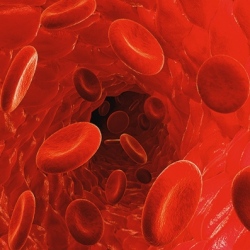
For decades, scientists have struggled to develop vaccines to stop the spread of HIV. And for decades, the vaccines have failed. HIV mutates at a ferocious pace, outrunning the immune system’s antibodies. Studies demonstrate that the immune system can be accelerated so it’s primed and ready to block HIV infection.
The studies describe a multi-pronged approach to an HIV vaccine, each one demonstrating a component of the process. Assembling all these components into a vaccine for humans is the final step. Testing could take place in about two years, the scientists say. The scientists, from The Scripps Research Institute, Harvard, MIT and other institutions have mapped out each step and shown in animal models that they work.
Three studies representing aspects of the research were released; two in the journal Science and the third in Cell. One study in Science indicates it is possible to trigger the antibody system, using an engineered molecule that mimics a vulnerable region of HIV, to make early versions of broadly neutralizing antibodies. The scientists say the primed immune system can then be successively exposed to substances that mimic aspects of HIV, to make more mature versions of these antibodies.
A separate study in Cell showed how the use of a different engineered molecule could complete the final stage of the maturation process to protective antibodies. Finally, a third study also in Science showed that the latter engineered molecule behaved well in vaccination of rabbits.
The research’s leaders include TSRI colleagues Dennis Burton, David Nemazee and William Schief. The scientists say they’re excited about the results. “It works much better than we expected,” Nemazee said. “So we’re quite positive now about trying something more complicated, like a human.”
While the results are strong enough to warrant human testing, many more hurdles lie ahead, said Anthony S. Fauci, director of the National Institute of Allergy and Infectious Diseases.
